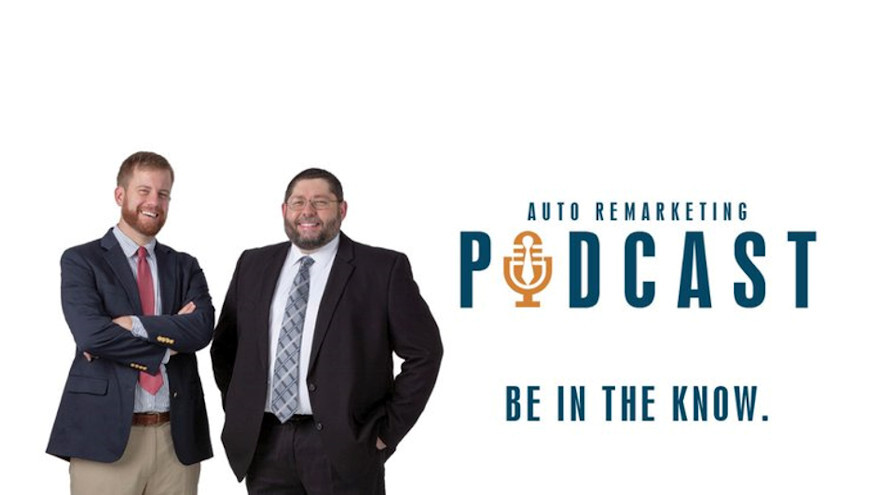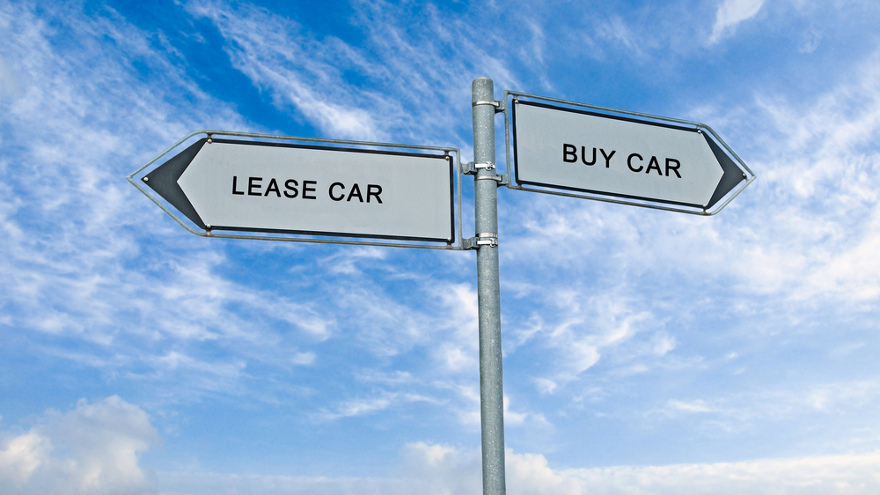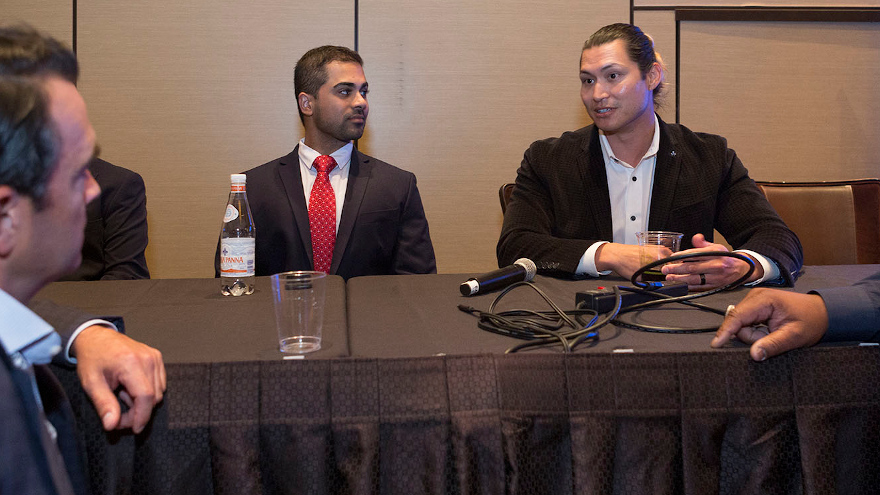It’s not quite a celebration, but Black Book found a few reasons to be a bit upbeat when compiling its latest Market Insights report.
While vehicle values still continued on a downward path, Black Book vice president of automotive valuations Laura Wehunt mentioned one part of the auction world that seems to be recovering.
“After weeks of high no-sale rates, this past week we started to see some small signs of improvement with some auctions around the country reporting conversion rates reaching 40% or more,” Wehunt said in the latest report.
According to Black Book’s volume-weighted information, overall car segment values decreased by 1.31% this past week, marketing the fifth consecutive week of such a decline. It was a bit of an improvement from the previous week value drop-off of 1.40%, leaving the five-week average at 1.08%.
“Once again, this past week the premium sporty car segment was the only segment to have smaller declines as the specialty and collector units don’t appear to have their demand falling as sharply,” analysts said.
Again based on Black Book’s volume-weighted information, overall truck segment values — including pickups, SUVs, and vans — softened by 1.24% last week, jumping from a week earlier when the decline came in at 1.00%.
“Last week, fuel prices made headlines as oil futures prices dropped below zero and that is showing in the large depreciations of the more fuel-efficient segments — sub-compact and compact crossovers,” analysts said.
Turning next to what Black Book’s representatives watching sales nationwide, observers shared a mixed bag of anecdotes; some a bit more optimistic than other ones. Here is the rundown:
— From Indiana: “Right now, I’m relying on dealer-to-dealer wholesaling for my trade-ins. The auction is a last resort right now.”
— From Pennsylvania: “I think they could have sold more today if the auctioneers had been willing to start lower and work up to the money.”
— From Tennessee: “The customers I’m getting right now are only interested in low-ball offers. Business is slow for me right now.”
— From Michigan: “The older, higher mileage, rougher condition units got a lot of attention today and a large percentage sold.”
— From South Carolina: “Two weeks ago, we had a conversion rate of 40%, and we got over 40% this past week. This is a great new trend to see after experiencing such low conversion rates at the end of March.”
— From Connecticut: “This week we saw bidders stepping up to pay the floor value to get the vehicle.”
Before the coronavirus pandemic, a significant portion of dealership training happened in a classroom or face-to-face setting. While the crisis put a halt on that particular education delivery, Dave Worrall certainly does not want improvement of store personnel to become stagnant — especially in the valuable F&I department.
The senior director of global training and development at Assurant Global Automotive recently joined Nick Zulovich for an episode of the Auto Remarketing Podcast to discuss how automotive education is changing and how dealerships can keep their employees equipped with the skills they need to meet the needs of today’s vehicle buyer.
To listen to this episode, click on the link available below, or visit the Auto Remarketing Podcast page.
Download and subscribe to the Auto Remarketing Podcast on iTunes or on Google Play.
Coinciding with Worrall joining the podcast, Assurant also announced that it is now offering free two-hour online webinars designed to help financial service managers (FSMs) and sales managers improve deal yields and connect with customers. These new courses are offered through Assurant’s Performance Institute, its F&I training platform.
“Now more than ever, dealers can’t afford to leave dollars on the table. Profitability begins and ends with your F&I and sales teams,” Worrall said in a news release. “We want to help dealers navigate through this period of uncertainty and take their F&I and sales department to the next level.
“Assurant is thrilled to offer a virtual learning experience that will help improve dealers’ financial performance and allow for the convenience of distance learning,” he continued.
This development marks the first time that the Assurant Performance Institute is offering complimentary training workshops to those who aren’t yet clients. Participants in the U.S. can register for two webinar training sessions; one focused on essential skills for a successful FSM and the other on proper deal structure and desking for sales managers.
A brief description of the webinars is listed below:
1. Essential Skills for a successful FSM
Assurant said participants can get actionable tips for increasing profit and attachment rates and learn how to improve primary sales skills while staying current with industry best practices.
Webinar topics include:
• Principles of selling
• FSM responsibilities
• Importance of the interview
• Structure of menu presentation
• Objection handling
2. proper deal structure and desking for sales managers
Assurant indicated participants can develop a deeper understanding of the fundamentals of a successfully constructed deal to reduce transaction times, provide a better customer experience, and create the path maximizing front and backend yield at your dealership.
Webinar topics include:
• Building value at the front of the deal
• Assisting customers based on their needs and budget
• Constructing a deal for both the customer and the dealership
“As cost control becomes a critical priority for dealers across the country, we wanted to ensure that we continued to honor our promise to dealers to provide them with customizable and innovative solutions that will help them grow their business,” Worrall said. “We are offering our training free of charge for the first time so dealers can take advantage of this unique opportunity to learn how to improve and maximize opportunities from market-leading instructors.”
Additional information and registration for Assurant’s webinars are available on this website.
Auction sales volume is still extremely soft, but continues to improve, according to J.D. Power Valuation Services.
And there are a number of other positive signs emerging in the auction community, says National Auto Auction Association chief executive officer Frank Hackett.
During the week ending April 19, there were close to 28,000 sales of vehicles up to 8 years old at auctions, compared to 23,500 auction sales the week before and 18,000 the week ending April 5, J.D. Power said in its COVID-19 Valuation Services Update released Friday.
(The company clarifies in its report: “Lagging reported sales for the week ending April 12 added ~4,300 sales to the previously report ~19,200-unit total.”)
Hackett, citing Jonathan Banks of J.D. Power Valuation Services, said in an interview Monday that during the weakest week of the pandemic, auction volume was at 20% of normal volume. On a daily measure, the softest day was April 7, which it dipped to 10%.
But it was at 30% last week, Hackett said.
"We're seeing it climb every week,” said Hackett, who conducts a teleconference call each Monday with leaders from the auction and remarketing industry.
He later added: “People are optimistic that things are improving and we're getting stronger week by week.”
During Monday’s call, Hackett noticed “how everybody's really optimistic about seeing things improving, week over week.”
Many of the comments were about the weekly improvements as well as gains in conversions and activity in California opening back up gradually, Hackett said.
He also mentioned the pricing strength auctions are seeing and that some of them have begun to bring back some employees.
More details on recent auction volumes
The first three weeks of the month showed an 80% year-over-year decline in auction sales volume, according to J.D. Power. That same total marked a 78% decrease from the company’s pre-virus projections.
On a more granular level, consider the actual auction sales volume for the week ending April 19 (about 28,000) compared to the pre-virus projection for that week (104,800).
There have been 160,000 auction sales since mid-March, according to J.D. Power. The pre-virus forecast for this period was 528,000. During the same period of 2019, auction sales volume was at 579,000 units.
But again, things are starting to pick up. In fact, J.D. Power reports that auction sales volumes for most vehicle segments showed growth the week ending April 19, though they still are soft.
“Double-digit gains were recorded for 14 segments across both the mainstream and premium sides of the market. The large pickup, small SUV, and large premium SUV segments experienced volume increases of more than 32% for the week,” J.D. Power said in the analysis. “Only two segments posted declines, specifically the small car and small premium SUV segments where volume fell by 7% and 18% respectively.”
Kerrigan Advisors sees the firm’s experience gained during the Great Recession prepared it to launch its latest service offering for dealerships.
In the wake of the global economic shock caused by the coronavirus pandemic, Kerrigan Advisors on Monday added confidential financial restructuring and turnaround services for dealerships to its consulting practice.
Stemming from deep experience helping businesses with successful restructuring sharpened for more than 10 years, Kerrigan Advisors now offers dealers a “unique” resource as they manage through this challenging period.
With its expanded consulting service offering, the firm said it is well-positioned to assist dealers as they manage through the restructuring process with lenders, landlords and other creditors to achieve a mutually beneficial outcome. Kerrigan Advisors can provide counsel to dealers during the critical strategic planning phase of restructuring and assists with operational performance issues and turnaround requirements. Key services include:
— Identify potential covenant defaults and review cure options
— Manage lender, creditor and landlord negotiations
—Develop go-forward business plans post-default
— Implement operational restructuring
— Develop/review cost reduction initiatives and execution milestones
— Implement cash conservation guidelines and controls
“Nearly 20% of auto dealerships closed their doors as a result of the Great Recession of 2008 with devastating impacts on local economies. Without serious planning and action, the current crisis could precipitate more closures of U.S. auto dealerships,” said Erin Kerrigan, founder and managing director of Kerrigan Advisors. “Kerrigan Advisors is dedicated to putting our expertise to work to help the nation’s auto dealers successfully navigate this very difficult crisis and avoid closures.
“While the current crisis is not the result of specific economic vulnerabilities, there is no doubt the impact will be resounding — car sales were down 39% in March, and trending 55% down for the first two weeks of April, per JD Power. We know from our experience in 2008-2009 that if businesses pre-emptively take the right actions, they can survive and, ultimately, thrive after a crisis such as this,” Kerrigan continued in a news release.
During the 2008 recession, Erin Kerrigan successfully led nearly a half a billion dollars’ worth of workouts on behalf of a major real estate investment trust (REIT) and has the expertise to assist dealers to determine the right steps to manage through the current economic crisis.
Kerrigan Advisors’ suite of consulting services also includes growth strategies, capital allocation, transactional due diligence, return on investment analysis, open point proposals, valuation, operational improvement and real estate advisory.
“Auto retailers are going to face some serious headwinds in the coming months. Metrics-based operations, cost control and cash flow planning will all be critical in managing through this cycle,” said Ryan Kerrigan, managing director of Kerrigan Advisors, whose expertise includes five years at McKinsey & Co. advising Fortune 500 companies with strategic planning, operations and organizational issues, and profitability improvement.
“We have built a team that is uniquely qualified to serve auto dealers at this time. Erin and I both conducted significant restructuring work in the prior cycle,” Ryan Kerrigan continued. “Gabe Robleto has worked through countless negotiations and restructuring of real estate contracts. Mercedes Hendricks has advised many dealers through cash flow planning, and Wayne Meyer is an accomplished auto retail executive with significant operational turnaround experience at the dealership level.
“Collectively, the expertise of the Kerrigan Advisors team has proven invaluable in helping auto dealerships survive through financial hardship,” Ryan Kerrigan went on to say.
More details about the confidential financial restructuring and turnaround services from Kerrigan Advisors can be found on this website.
Jasen Rice, founder of Lotpop, says there is potential for the certified pre-owned market to emerge from the COVID-19 pandemic as the "winner."
But there's a catch.
In this podcast, which follows up on a story from Auto Remarketing correspondent Jim Leman, Rice explains what it will take from automakers (and dealers) to make such CPO success happen and their willingness to take these measures.
To listen to this episode, click on the link available below, or visit the Auto Remarketing Podcast page.
Download and subscribe to the Auto Remarketing Podcast on iTunes or on Google Play.
It has been another tough month for used-vehicle sales, though some positive signs are emerging.
First, the full-month forecast.
TrueCar’s ALG business unit is forecasting a 71% year-over-year decline in used-car sales in April, projecting a monthly tally of 1,086,494 used sales. That would also represent a 60% month-over-month decline.
Franchised dealers, specifically, sold a little less than 400,000 used vehicles in the four weeks up to April 19, according to J.D. Power Valuation Services, which compared that sum to wholesale auction sales during the same period (93,000).
“To put this in perspective, pre-virus there were approximately two used retail sales at franchise dealers for every auction sale. This ratio has averaged more than four used retail sales per auction sale since the week ending March 29,” J.D. Power said in a COVID-19 Valuation Services Update on Friday.
“This indicates that franchise dealers are selling down their used retail inventory, much of which was likely purchased previrus, and are reluctant to purchase replacement units,” it said.
Elsewhere in Friday’s update, J.D. Power said used retail sales at franchised dealerships so far this month have fallen 54% year-over-year. Last month, their used sales ended up dropping 38%.
But the rate of decline did slow for the week ending April 19. There was a 44% year-over-year drop that week, versus the 57% decline a week before, according to J.D. Power’s data.
Cox Automotive shared one silver lining in the pre-owned market earlier this week.
“The decline in used-vehicle sales bottomed at the beginning of April and have been improving since,” Cox Automotive chief economist Jonathan Smoke said in market update video on Tuesday.
“We estimate that used was down 53% year-over-year last week and the trend was better on Sunday,” Smoke said, referring to April 19. “Underlying unique credit application submissions on Dealertrack point to stability or improvement again this week.”
Specifically, a Cox Automotive graph with the daily year-over-year change in retail used vehicle sales shows that sales were down 51.7% on Sunday. That compares to a decline well above 60% to begin the month.
In a weekly newsletter released Friday, Smoke said: “The trends we are seeing are improving every week. Much of the improvement seems to be coming from markets that are recovering more than the national totals show. This week is seeing day by day improvement, with the used market especially seeing accelerating gains.”
In an episode of the Auto Remarketing Podcast, LotLinx CEO shared some positive signs for used cars, as well.
“Bad news is, sales are down 50% in used across the country,” says LotLinx CEO Len Short. “But when you start to drill down to the markets, you'll see that there are a whole bunch — over half — of markets that are doing just fine …
“Dealers are selling cars and consumers intend to purchase and are actually following through with purchases in the markets where they can.”
Here’s at least one segment of the automotive industry that’s remaining relatively steady amid the coronavirus pandemic.
On Thursday, Swapalease.com reported its vehicle-lease credit applicants registered an approval rate in March of 69.3%, representing just a slight decline from the February rate of 72.3% and January’s reading of 70%.
March also generated a slight decrease in approval ratings from the previous year. Swapalease noted that 70.7% of lease applicants were approved last March.
Site officials also indicated March included a higher number of applicants with qualifications for taking over another person’s lease contract, reaching the highest number since December.
“It’s no secret that the we’re seeing a shift in automotive shopping trends as March was fused between several stages of stay-at-home mandates and an increase in social distancing practices,” Swapalease executive vice president Scot Hall said in a news release.
“We’re seeing an increase in shoppers who are looking for alternative channels to acquire their next vehicle, rather than visiting the dealer showroom where the risk of exposure to the virus could be greater,” Hall continued.
Earlier this month, Auto Remarketing welcomed Hall back for another episode of the podcast where he discussed site traffic and more. That episode is available through the window at the bottom of this page.
Along with four overall observations and projections about sagging used-vehicle values, Edmunds senior manager of insights Ivan Drury also pointed out the impact made by what he called the “invisible market.”
Drury and Edmunds’ other analysts say that a sudden halt in demand for vehicles combined with economic uncertainty will lead to an initial knee-jerk drop in used values, based on historical precedent. In 2008, they determined 3-year-old vehicles lost nearly 10% in value, whereas the year before they declined less than 5% in value.
“Recessions aren’t kind to used values,” Drury said in a news release. “With shelter-in-place mandates expected to continue through at least May for most of the country and no clearly defined end to the pandemic in sight, we can anticipate a trickle-down effect on the used market.”
And perhaps at the bottom of that trickle pattern is that “invisible market” Drury noted in Edmunds’ report. What might be “invisible” to consumers certainly is not to dealerships. Of course, it’s the auctions.
“While consumers might have some sense of visibility into (demand and trade-in values), there is an entire ecosystem where millions of units exchange hands out of the public eye,” Drury said. “Dealers often send used vehicles that have sat on their lots for 60-plus days to auction in hopes of at least breaking even on them.
“This reality is rarely on a consumer’s mind when evaluating a trade-in offer,” he added.
And speaking of trades, the team at J.D. Power Valuation Services is expecting that the reductions in trade-ins because of softening retail sales — coupled with interruptions in off-rental and off-lease vehicles coming into the wholesale space — likely will impact auction volume through at least June.
All told, J.D. Power is projecting that about 1 million to 1.25 million units will enter the wholesale market during the second quarter, acknowledging in its update posted on Friday that “changing virus, market, and macro-economic conditions can drive changes in our outlook moving forward.”
More insight from Edmunds
Drury and the other Edmunds analysts took a deeper look at the impact that this plummeting used-vehicle values will have on consumers, some of the factors at play in the market that will impact used vehicle values differently, and what the used market might look like once the economy begins to rebound.
Their research findings included:
• Shoppers in the position to purchase a used vehicle now will find some bargains, but consumers who are planning on selling or trading in their vehicle might be in for a bit of a shock.
Edmunds emphasized consumers who want to sell their vehicle for extra cash or trade it in toward another purchase might be surprised at the assessed value of their vehicle, especially if they’re comparing current list prices to their offer.
• Multiple factors will impact used vehicle values differently.
Analysts explained lower demand, unusually timed off-lease inventory and reduced auction prices are major contributors toward a drop in used car values. New car incentives from automakers in response to the coronavirus crisis will also further depress prices of off-lease, near-new used vehicles.
• Used values are expected to remain lower for the foreseeable future.
Once the economy begins to rebound, Edmunds stressed that used vehicles are often sought after as a place for consumers to save money when the nation is coming out of a recession. As a result, analysts projected used values are expected to stabilize, but not necessarily rebound significantly, since most vehicles steadily lose value as they get older.
• Unique dynamics between the new and used market could help keep used values in a healthier place.
Although used-vehicle values aren’t expected to rebound in the short term, Edmunds calculated 2019 brought a record gap of nearly $15,000 between new- and used-vehicle prices. Analysts explained this gap allows for used values to increase without becoming a threat to new, and reduced wear and tear to vehicles as consumers drive less during this pandemic could also help lift values slightly in the future.
Although used values are expected to remain lower in the near-term, Drury and the other Edmunds analysts say that there’s no one-size-fits-all answer for what consumers should do if they’re contemplating selling their vehicle right now.
“Personal finances are understandably top of mind for most people right now, so if you’re a car owner and you’re in need of quick cash, selling your vehicle is still a decent option if you’re in a positive equity position or if you have an extra vehicle in the driveway,” Drury said in the news release.
“A number of companies provide online trade-in evaluations and instant offers, and many dealerships offer to buy vehicles even without a purchase from their inventory,” he continued. “Consumers can get a good idea of what the trade-in market is for their vehicle by shopping around and determining which blend of value and convenience is right for them.”
Additional price expectations from J.D. Power
Turning back to information from J.D. Power Valuation Services, analysts noted that their data shows wholesale prices are currently 15% below their pre-virus levels in early March and represent a market fractured by extreme supply and demand.
“While severely depressed, wholesale prices are expected to recover from their current lows, with duration and degree depending on the lifting of stay-at-home orders and the extent of stimulus impact,” analysts said.
According to what J.D. Power explained as its likely scenario, the forecast has wholesale prices declining between 8% and 11% through June before improving as more businesses open throughout the country.
“Our outlook is centered on macroeconomic expectations, particularly the expectation that the country will continue to experience significant job losses through the second quarter, followed by a gradual recovery in the second half of the year,” analysts said.
“Given the highly uncertain nature of the COVID-19 pandemic, this forecast is subject to change in the coming weeks,” they added.
As a whole, the used-car market is struggling. But data from LotLinx shows a silver lining.
"Bad news is, sales are down 50% in used across the country," says LotLinx CEO Len Short. "But when you start to drill down to the markets, you'll see that there are a whole bunch — over half — of markets that are doing just fine …
"Dealers are selling cars and consumers intend to purchase and are actually following through with purchases in the markets where they can," he said.
Short discusses this silver lining and more in detail in the latest episode of the Auto Remarketing Podcast.
To listen to this episode, click on the link available below, or visit the Auto Remarketing Podcast page.
Download and subscribe to the Auto Remarketing Podcast on iTunes or on Google Play.
After car sales, manufacturing, repair and other key pieces of automotive were found to be essential businesses in a guidance update from the Department of Homeland Security’s Cybersecurity & Infrastructure Security Agency on Friday, it begs this question:
Would the wholesale and auto auction industry be included?
“I think it's still open to interpretation, but I would believe that it's going to impact our business, as well,” National Auto Auction Association chief executive Frank Hackett said Monday of the CISA guidance. “It's got to. We are essential. It's no doubt. We're part of that food chain.”
Looking at how the auto ecosystem works and the importance auto auctions have, Hackett said, it would be difficult “to not look at us as being essential.”
While it does not appear that the CISA guidance specifically lists wholesale or auto auction workers as “essential,” the guidance does include “supply chains,” which almost assuredly would have to inlcude auctions.
Auctions, of course, are a major supplier of used vehicles for dealers, who sell tens of millions of pre-owned vehicles each year.
Below is the key passage of the CISA guidance applicable to this industry, where the agency deemed essential, “Workers critical to the manufacturing, distribution, sales, rental, leasing, repair, and maintenance of vehicles and other transportation equipment (including electric vehicle charging stations) and the supply chains that enable these operations to facilitate continuity of travel-related operations for essential workers.”
In a letter to President Donald Trump sent March 25, Hackett voiced his support of efforts made by franchised and independent car dealers, who had asked the president for clarification that sales and leasing at their stores is an essential service amid COVID-19.
Hackett also emphasized the importance that auto auctions play in both the auto industry and the nation’s overall economic health.
On March 24, the leaders of the National Automobile Dealers Association (NADA), the American Truck Dealers (ATD), the National Association of Minority Automobile Dealers (NAMAD), the American International Automobile Dealers Association (AIADA) and the Alliance for Automotive Innovation sent a letter to Trump asking for clarification that vehicle sales are essential services that need to be maintained during the COVID-19 pandemic.
The National Independent Automobile Dealers Association also delivered a letter to the White House so stores not connected with an automaker can remain open, too.
In a subsequent news release, NIADA lauded the decision by DHS.
“Transportation is absolutely essential, and our industry can serve the needs of those on the front lines of our efforts to vanquish the virus,” NIADA CEO Steve Jordan said in that release. “We are thrilled that CISA and the Administration have expanded the list of essential services to include vehicle sales, especially as communities are beginning to come together to re-open the economy.
“Independent auto dealers are ready to assist health care workers, emergency responders, infrastructure workers, delivery drivers and others who are performing vital tasks to support public health when they have a need to replace or repair their vehicle.”
During NAAA’s latest teleconference meeting with leaders of the auction industry, Sante Esposito, a lobbyist for the association, said the lobbying efforts of NAAA in recent years have paid off, including the recent letters sent by the trade group to leaders in Washington, Hackett said.
“One good thing that came out of this was our lobbying efforts in Washington,” Hackett said.
“Here's an example of where we've kind of gone from being that unknown to spending a lot of time in Washington, where we helped with a letter to all of the important folks in Washington — the president, the vice president, members of the cabinet and so forth”, he said, emphasizing their support of independent and franchised dealers being essential services.
Hackett would later add, “We as an industry — Manheim, ADESA and all the independents — compete for business. But at the same time, it's the strength of our industry, with all of those groups coming together and having a lobbying effort to really demonstrate our industry as being important. Without everyone playing on the same team, I don't think that we can do all the things that (NAAA does).
“It just demonstrates the importance of a trade association and what we're supposed to be doing,” he said. “And here's an example of what we've done right.”
Speaking of legislative or government issues, Hackett said people continue to talk about a potential “Cash for Clunkers” reboot, but he has not seen any legislative movement so far.
Hackett said NADA is aware of NAAA’s concerns around vehicles included in a potential Cash for Clunkers program being crushed.
“We don't have a problem with the program,” Hackett said. “But we just don't want the vehicles destroyed or crushed.”
In a previous interview, he had said “those are the cars that run through the lanes. And it just hurts everyone when they take them off the street. Because those are the cars that some people can afford to buy, that we think are important to keep in the market. Some people aren't in the market for a new car.”
Automotive lobbying efforts like those of NAAA have been widespread around this issue of auto sales being deemed essential.
That would include the CARS Inc. group of Cars.com, Dealer Inspire and DealerRater, which said it has helped further the efforts made by the likes of NADA, NIADA and the Alliance for Automotive Innovation through a “Allow Safe Auto Sales” and “Keep Auto Open” campaign launched last month.
That campaign included a digital petition where local dealers could communicate directly with Homeland Security via personalized requests to advise auto sales and leasing as essential. There were nearly 5,000 signatures to that petition, Cars.com said.
“I’m proud to see the automotive industry come together to help car shoppers and sellers get what they need during this difficult time,” CARS CEO Alex Vetter said in a news release.
“Dealerships across the country are innovating overnight to meet the needs of homebound consumers who are still shopping and looking to connect differently with local dealers,” Vetter said. “Car sales can be done remotely and digitally or during one-on-one scheduled appointments keeping social distancing regulations at the forefront, as many states have done. I commend the industry for its efforts and trust dealers will keep public health a top priority as they return to selling cars safely while keeping the economy moving forward.”
Vetter adds, “The technology is available to advance the automotive industry and help consumers experience cars through virtual test drives and vehicle walk-arounds, communicate in real-time with dealers through online chat tools, conduct credit pulls and financial paperwork digitally and, ultimately, purchase a car and have it delivered to the home.
“This is the digital revolution for automotive that will greatly advance car shopping for consumers and we’re ready for it.”
An important reminder CARS makes is that the situation is fluid, with governors determining if the DHS guidance works for their respective states.
Along those lines, NIADA urged state and local governments to match the federal guidance issued Friday.
“Now is the time for state governors, county executives and mayors who have issued local orders to resolve any conflicts with the updated federal guidelines as it relates to motor vehicle sales,” NIADA senior vice president of legal and government affairs Shaun Petersen said in a release.
“The updated federal guidance is an express recognition that motor vehicle sales can safely continue, and NIADA will continue to urge all independent dealers to place the safety of their customers and employees first.”
Nick Zulovich contributed to this report.












